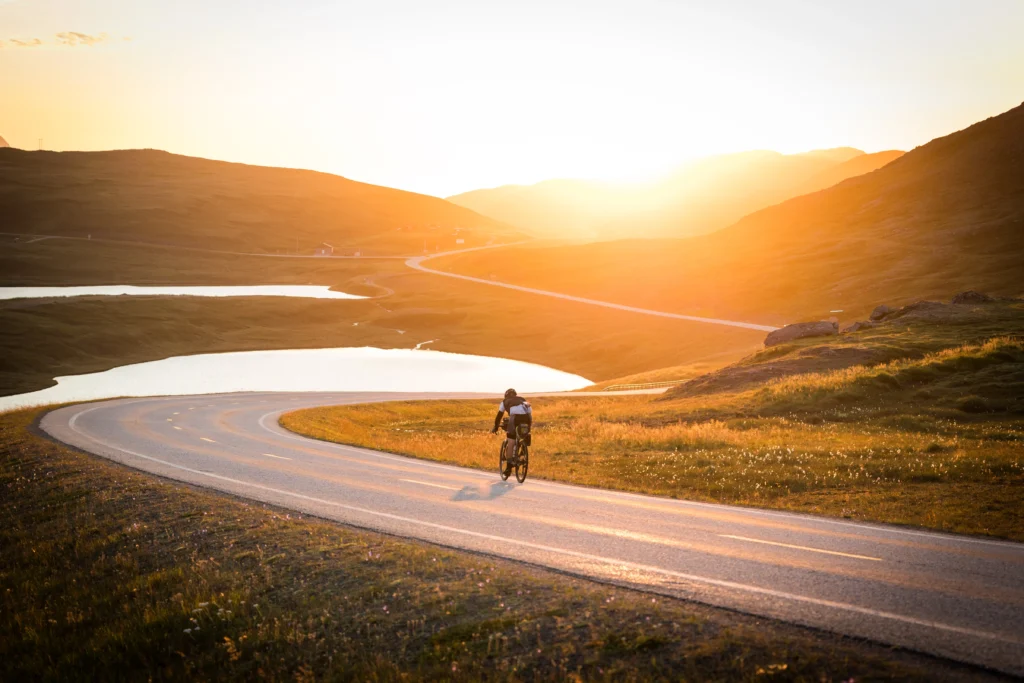
At a time when mass tourism is putting a strain on our cities and the environment, an unexpected solution could come from two wheels and a few bags. Bikepacking and cycle tourism are proving to be not only an alternative way of travelling, but a true philosophy capable of reconciling human beings with the territories they cross.
The crisis of contemporary tourism
The end of the pandemic has unleashed an irrepressible desire to travel, rapidly turning into what experts have called ‘revenge tourism’. The consequences are there for all to see: congested airports, overcrowded destinations and the return of overtourism even more intense than in the pre-pandemic period.
The most visited cities are undergoing a worrying metamorphosis. The great European capitals, but also cities such as Florence and Lisbon are seeing artisan shops succumbing to the advance of international chains, gradually turning into open-air theme parks. The travel experience becomes standardised: obligatory shots at the Tower of Pisa, endless queues at restaurants ‘seen on Instagram’, cloned itineraries following social media trends. Authenticity becomes a rare commodity.
A multidimensional impact
Mass tourism does not just transform the urban landscape: it disrupts the environmental and social balance of territories. The paths of the Cinque Terre are deteriorating under the weight of thousands of daily passers-by, while in Dubrovnik, flats in the historic centre are being transformed into holiday homes. Local communities are faced with a paradox: on the one hand, tourism brings economic wealth; on the other, it erodes the cultural and social identity that makes these places unique.
The environmental impact of mass tourism manifests itself in many forms: from air pollution caused by transport to excessive consumption of water resources, from waste production to pressure on local ecosystems. Popular destinations are reaching saturation point, with negative consequences for both the environment and the quality of the tourism experience.
Bikepacking as the answer
In this scenario, bikepacking emerges as a surprisingly effective answer. The bike traveller becomes a modern pilgrim: a silent visitor who crosses territories with respect and authentic curiosity. Like those who cycle along the Via Francigena, they discover forgotten villages, familiar inns and meet people with stories to tell.
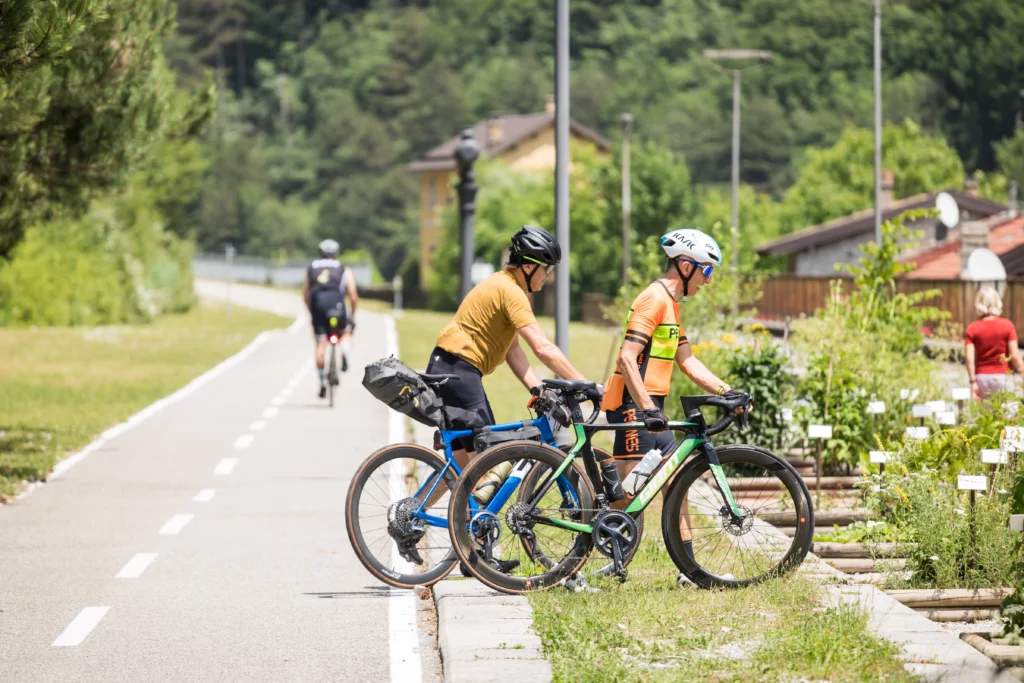
The philosophy of slow travel
Bikepacking is not simply a way of travelling: it is a philosophy that prioritises the quality of the experience over the quantity of destinations reached. This mode of travel requires careful planning that takes into account not only distances, but also weather conditions, topography and the resources available along the route. This need for planning naturally leads to a more conscious and respectful approach to the territory.
Essential equipment as a lifestyle choice
The need to travel light imposes conscious choices about equipment. This physical limitation turns into a lesson in essentiality that many travellers also take with them into their daily lives. The bicycle thus becomes not only a means of transport, but an instrument of personal and social transformation.
A model of sustainable development
This is confirmed by an apparent paradox: the Tuscany Trail. It is the most attended event in the world, and yet it succeeds in both of these challenges – with a few small but impactful tricks.
The first is to give nothing perishable at the start. Riders already have all the information digitally months before the event and have nothing extra that they will inevitably lose along the way. The ‘goodies’ package comes at the end, when it can receive the proper attention even in its consumable parts, i.e. food or paper objects and memorabilia.
The second is the staggered and not ‘mass’ starts, combined with the no-race spirit. While 6000 people may seem like a lot on paper, the organisers – even in 2025 – decided to close registration early for this very reason. With the split over three days and the non-simultaneous departures, the passage is indeed continuous but spaced out and absorbed by both the territory and the small economic operators on the route. In villages that are often little travelled, months in advance small bars and bakeries can prepare for the exceptional arrival of bikepackers from all over the world, creating a significant, but not predatory, inducement.
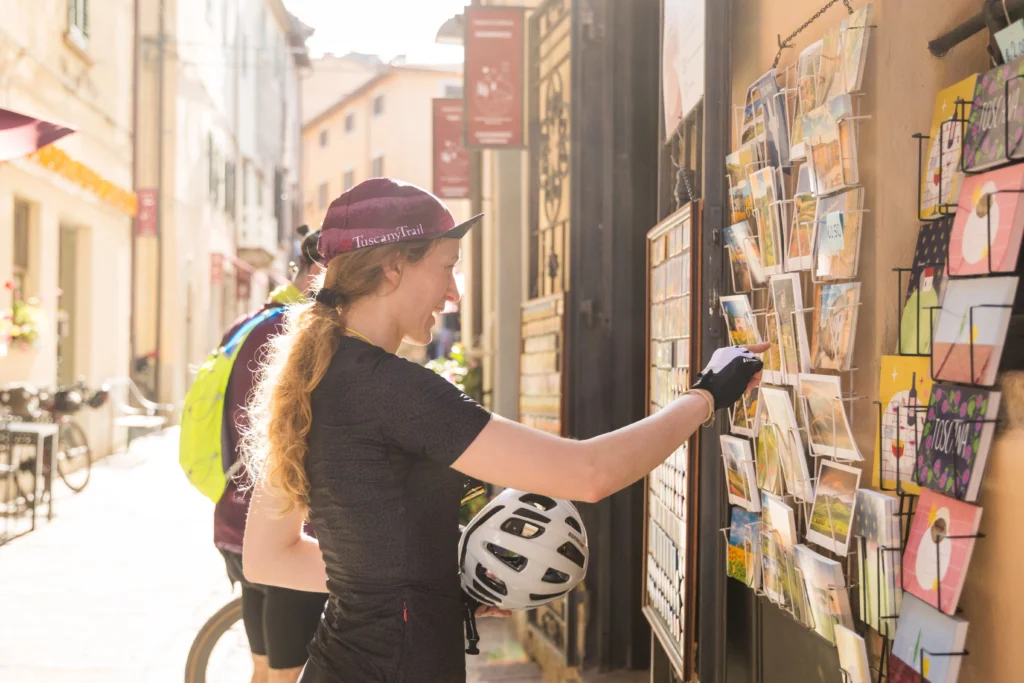
After all, the rule is always ‘eat and ride’. With the departures over several days and not at the same time, the pressure on these small towns is not made at a single time, but is spread out and can be dealt with even by Tuscan grandparents who have been making bread for decades.
The basecamps are the combination of all these aspects. Local communities are not subjected to tourism but participate in it, and there is an effective exchange not only of value but of experience, knowledge or even just laughter.
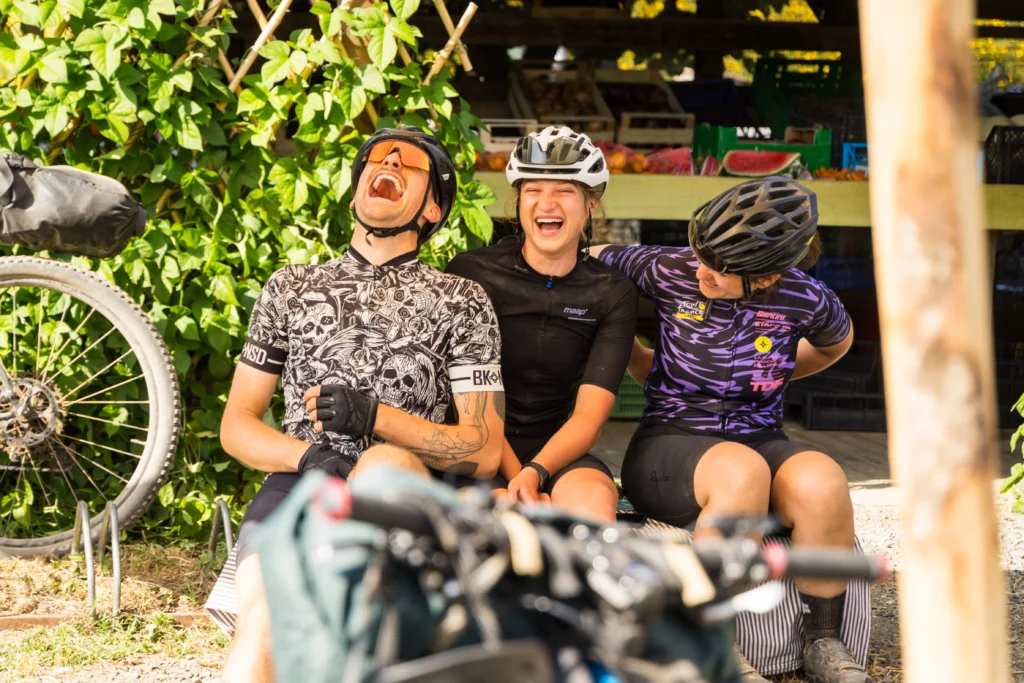
You will not be surprised to learn that as soon as the Tuscany Trail ends, work begins again to organise the next edition. Once everything has been disassembled, we talk to the small traders, to the mayors of the municipalities, even the smallest ones of 1,000 inhabitants, we ‘make the rounds’ to see that everything went well and gather advice to improve for the following year. It’s a lot of work, it’s true, but the deep love for this area that can be seen in the eyes of the Tuscany Trail participants is nurtured, prepared and made to blossom with these very gestures and ‘rounds’.
Distributed economic impact
Unlike traditional tourism, which tends to concentrate resources in a few main locations, bikepacking distributes the economic benefits over a wider area. Bicycle travellers need frequent stops for supplies, repairs and overnight stays, creating economic opportunities even in smaller locations. This model of tourism development is particularly valuable for inland areas, which are often neglected by traditional tourist flows.
The regular arrival of bikepackers can revitalise local economies in unexpected ways. In addition to activities directly related to hospitality, opportunities emerge for specialised services such as bike workshops, local guides and producers of typical products. This economic diversification strengthens the resilience of rural communities and helps counter depopulation.
Seasonal adjustment and sustainability
Bikepacking naturally favours the deseasonalisation of tourism. Bicycle travellers move throughout the year, often preferring the intermediate seasons to enjoy more favourable weather conditions. This creates a more constant and sustainable tourist flow, allowing local activities to remain active even during periods traditionally considered ‘dead’.
Shared infrastructure
The development of bikepacking and cycle tourism brings with it an often underestimated benefit: the creation of cycling infrastructure that improves the quality of life for residents. Cycle paths, equipped rest areas and specialised workshops, initially designed for travellers, become valuable resources for the local community. This virtuous process stimulates everyday sustainable mobility: residents, seeing more cyclists in the area and finding adequate infrastructure, are more likely to consider cycling as a regular means of transport.
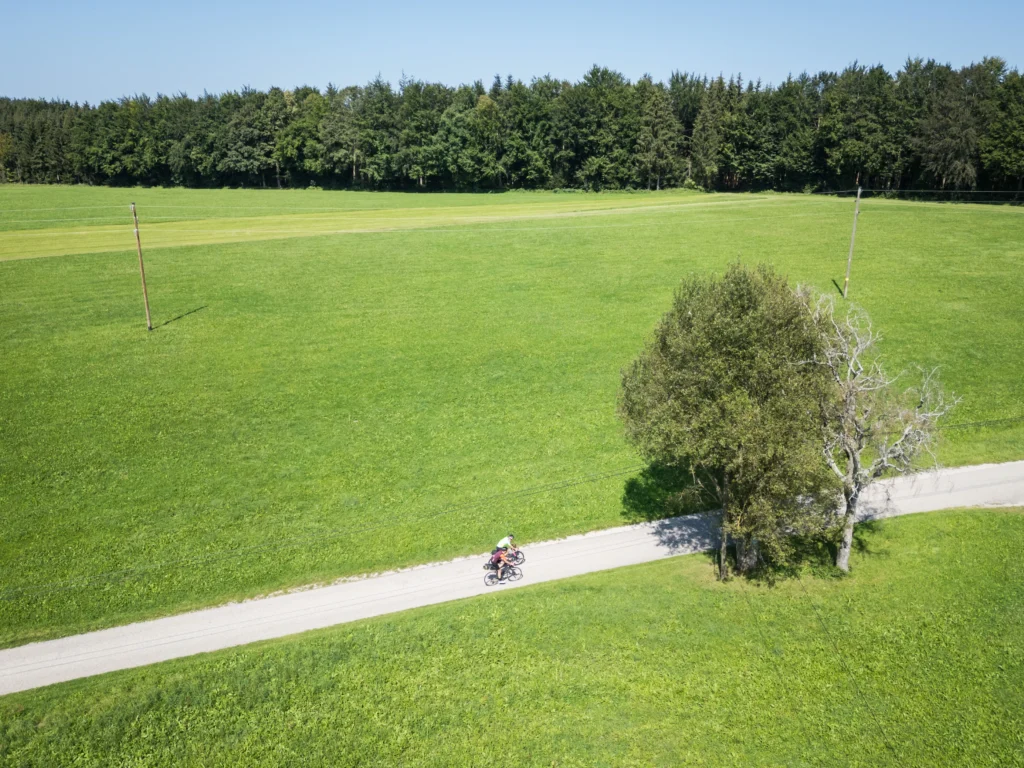
The example of the Alpe Adria Radweg cycle path in Friuli Venezia Giulia shows how an infrastructure created for tourism can turn into a fundamental artery for local mobility. The same cycle paths that accommodate hundreds of bikepackers during The Grand Escape Slovenia, during the week become the preferred route for the home-work commute of many residents. This dual function maximises the return on public investment and helps create a culture of sustainable mobility that takes root in the local area.
Authentic interactions with the territory
The very nature of bicycle travel encourages deeper interactions with the territory and its inhabitants. Vulnerability to the elements and the need for local support naturally create opportunities for exchange and sharing.
Travelling by bicycle establishes more human and lasting relationships. A bicycle traveller, with his bags loaded with the essentials and his vulnerability to the elements, always generates wonder and healthy curiosity in the people he meets.
Creating memories
It is an image that contrasts with that of the conventional tourist: there is no barrier of the car window, there is no hurry of someone who has to respect the times of an organised tour. The cyclist is exposed to the elements, to fatigue, to the territory he crosses, and this apparent fragility makes him more ‘human’ in the eyes of those he meets, more accessible, more interesting.
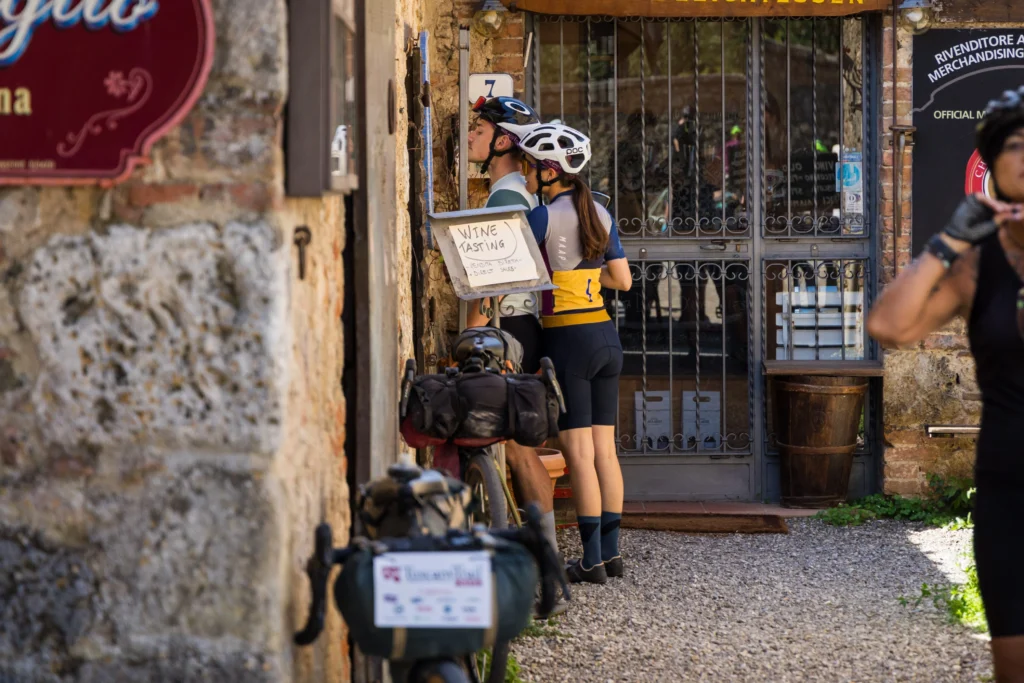
This is especially true in rural places, where the passage of a cycle traveller is still an unusual event that raises questions: ‘Where are you from?’, ‘Where are you going?’, ‘How do you ride with all that weight?’. It is precisely these questions that often lead to the establishment of unique and memorable conversations – such as when you stop at a small village trattoria and end up listening to family stories passed down through the generations, or when you ask a local elder for directions and are invited to share a glass of homemade wine as he recounts anecdotes of the area.
These interactions contribute to preserving and enhancing the local cultural heritage, creating a virtuous circle between visitors and residents.
A vision for the future
Bikepacking is not only an alternative to traditional tourism, but ****a model for completely rethinking the way we explore the world. The organisation of dedicated events becomes an opportunity to involve local communities, collaborate with institutions and demonstrate the value of the bike economy in territories that welcome travellers from all over the world.
To effectively counteract overtourism, a collaborative approach involving all actors is needed: institutions, local communities and travellers. Bikepacking, with its philosophy of slow and conscious travel, may not save the world alone, but it certainly points in a promising direction towards a more sustainable and humane tourism.

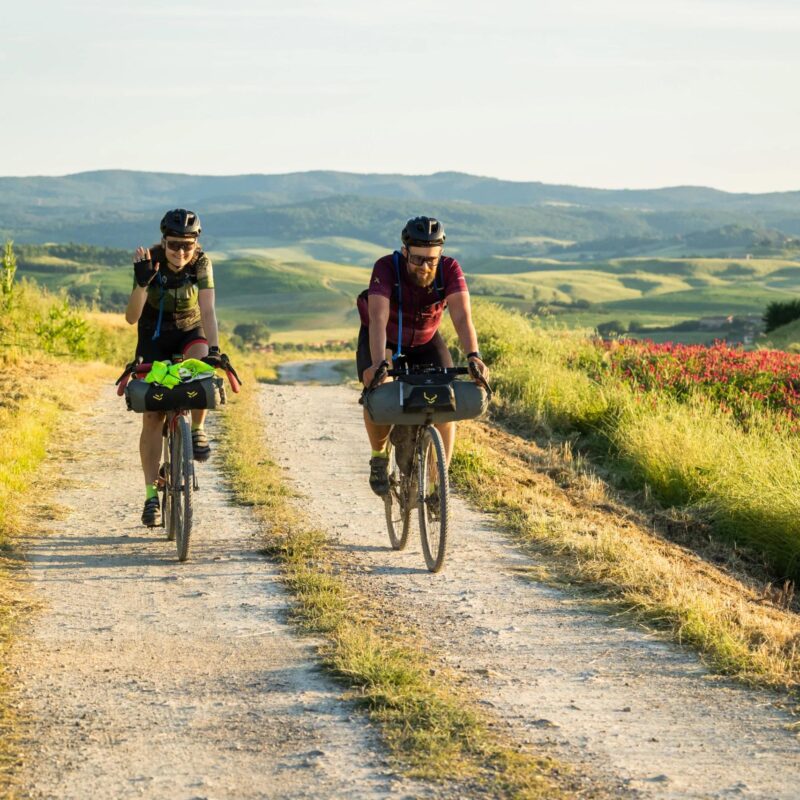
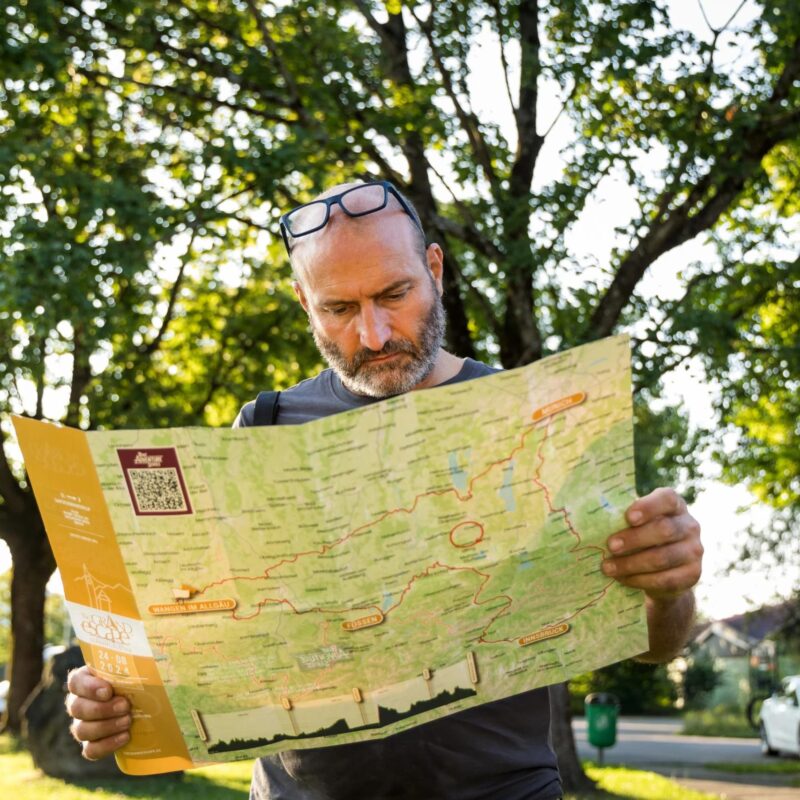
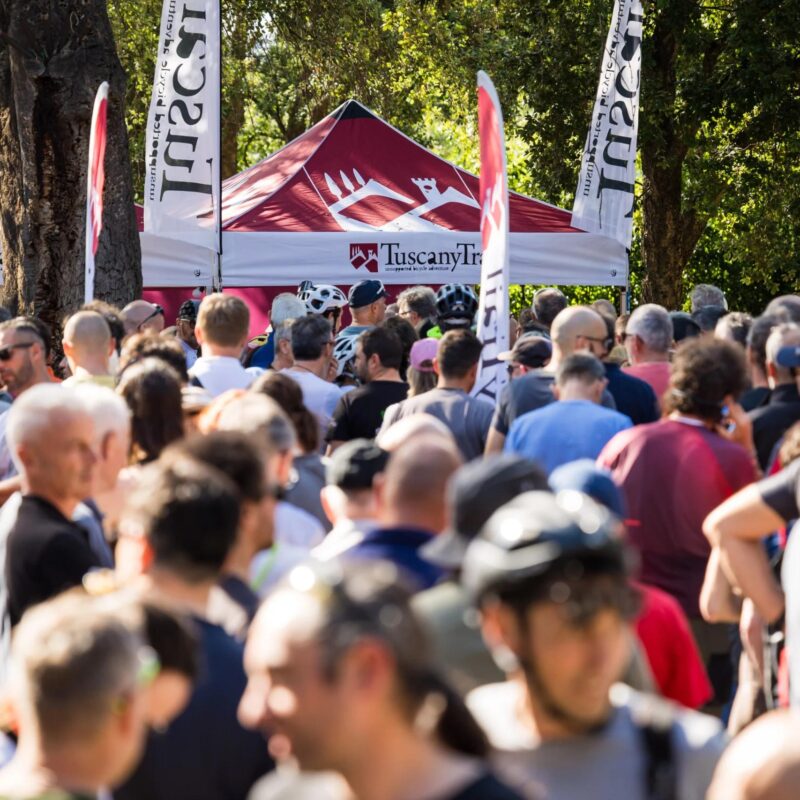
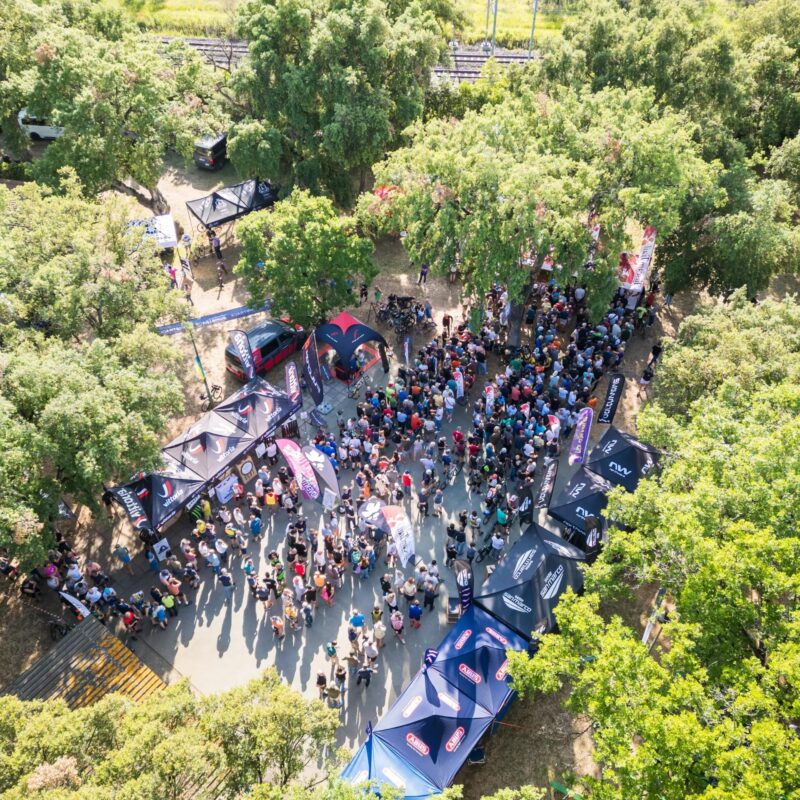
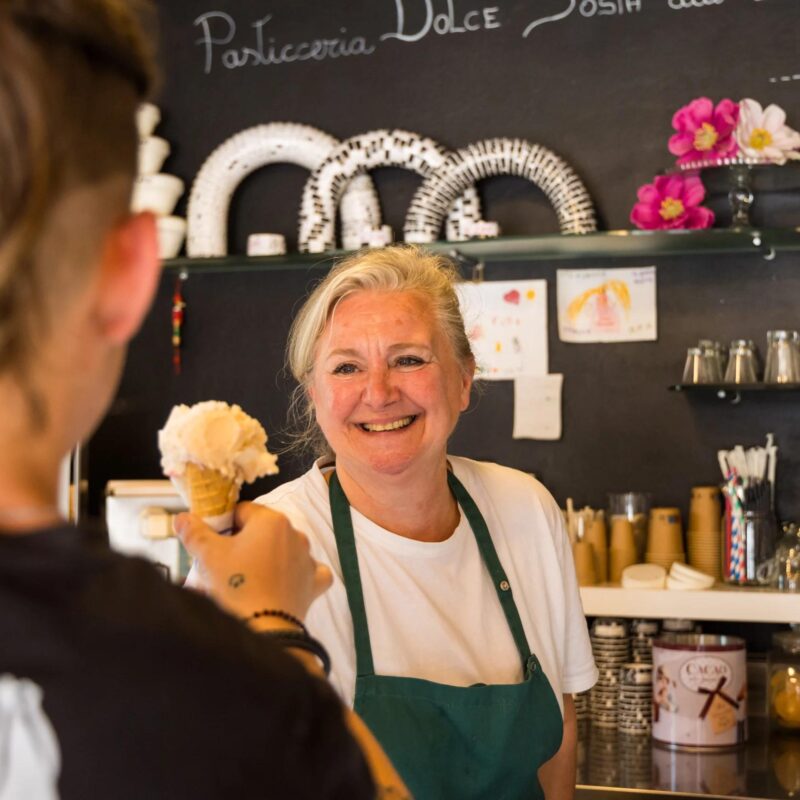
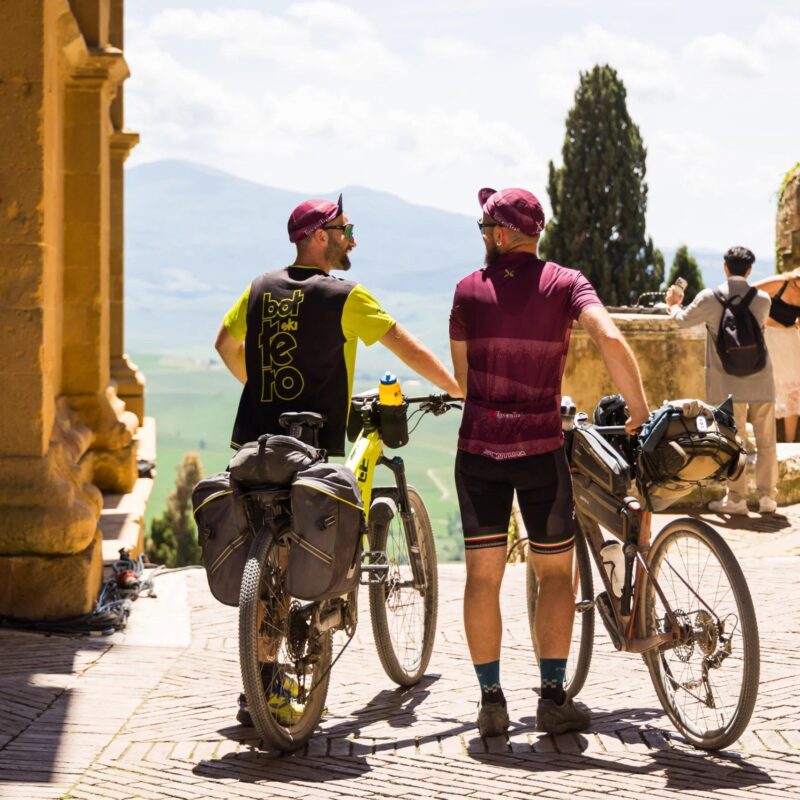
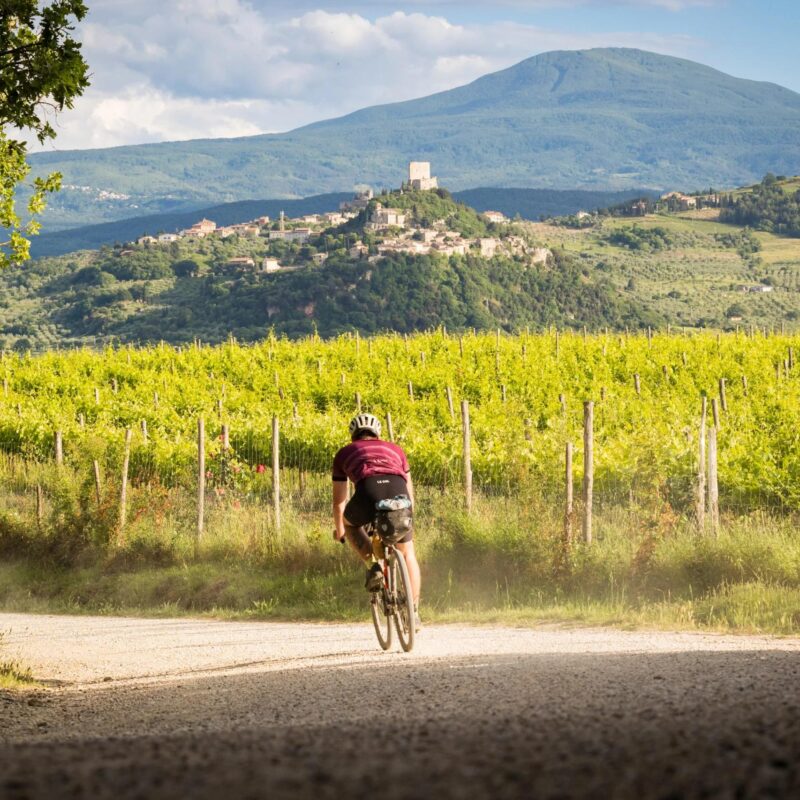
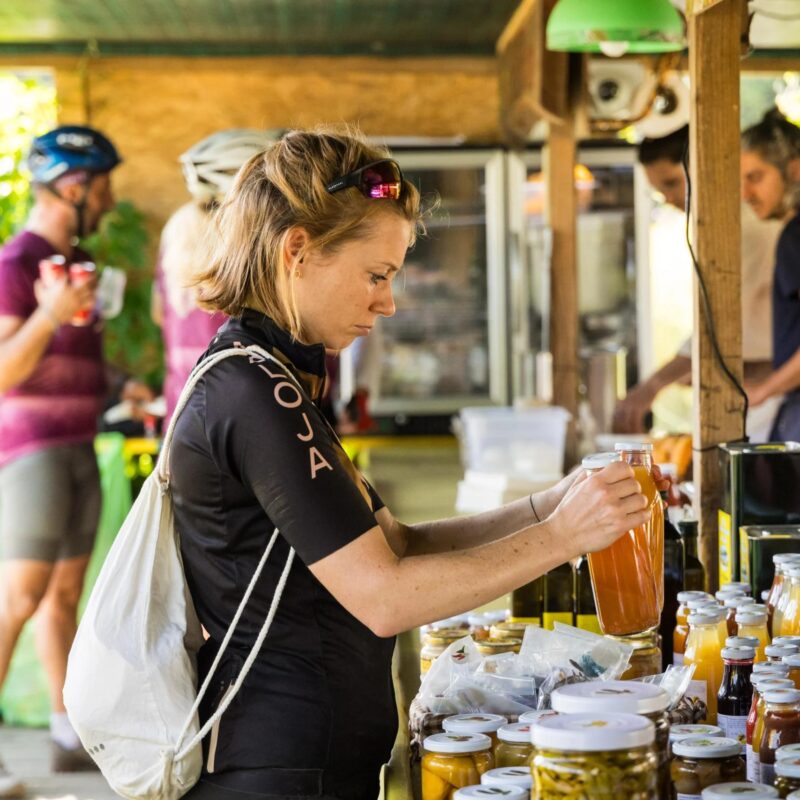
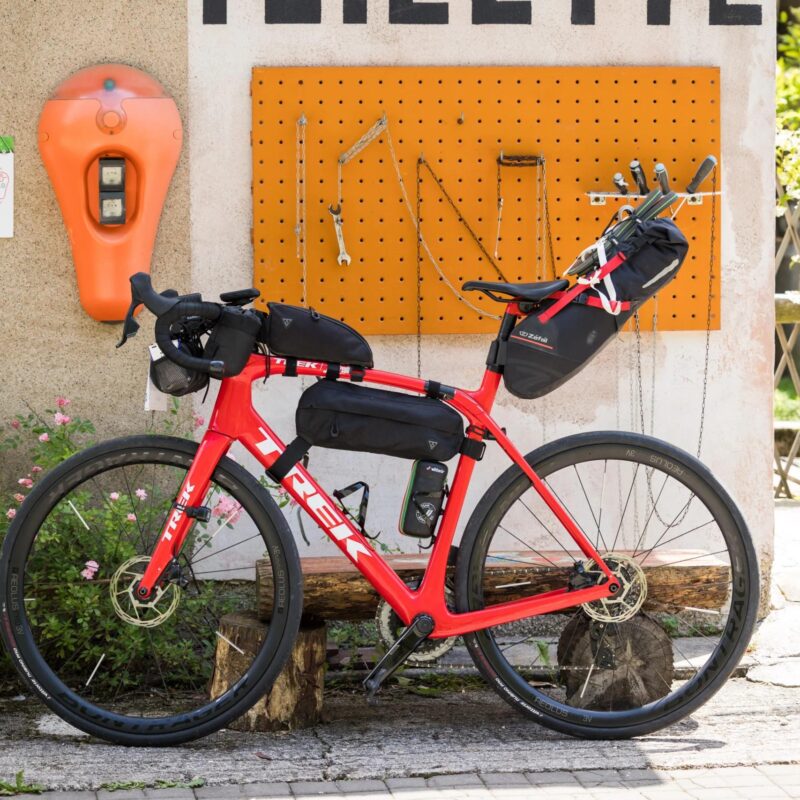
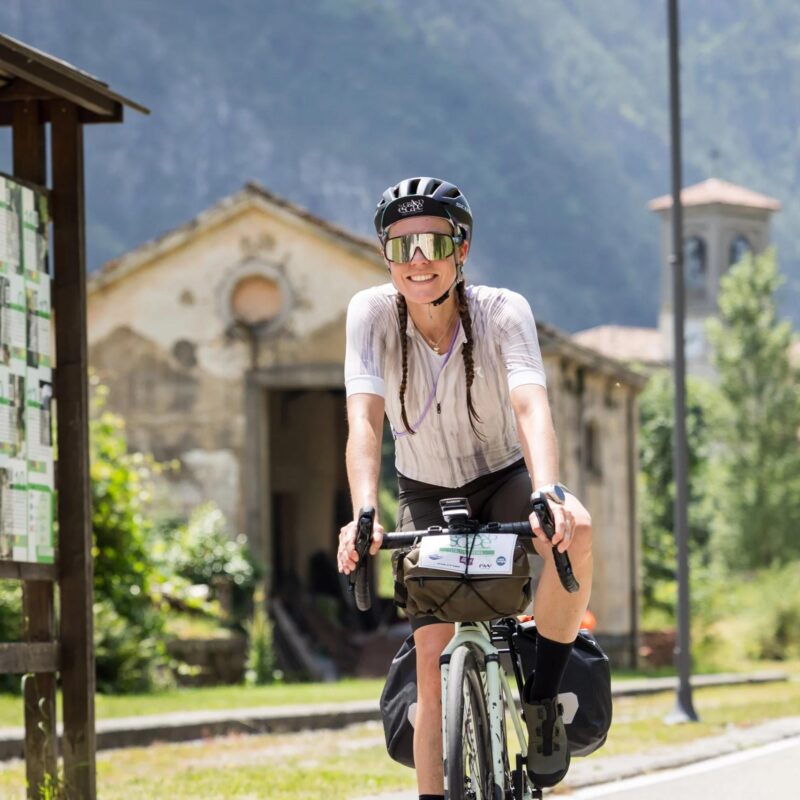

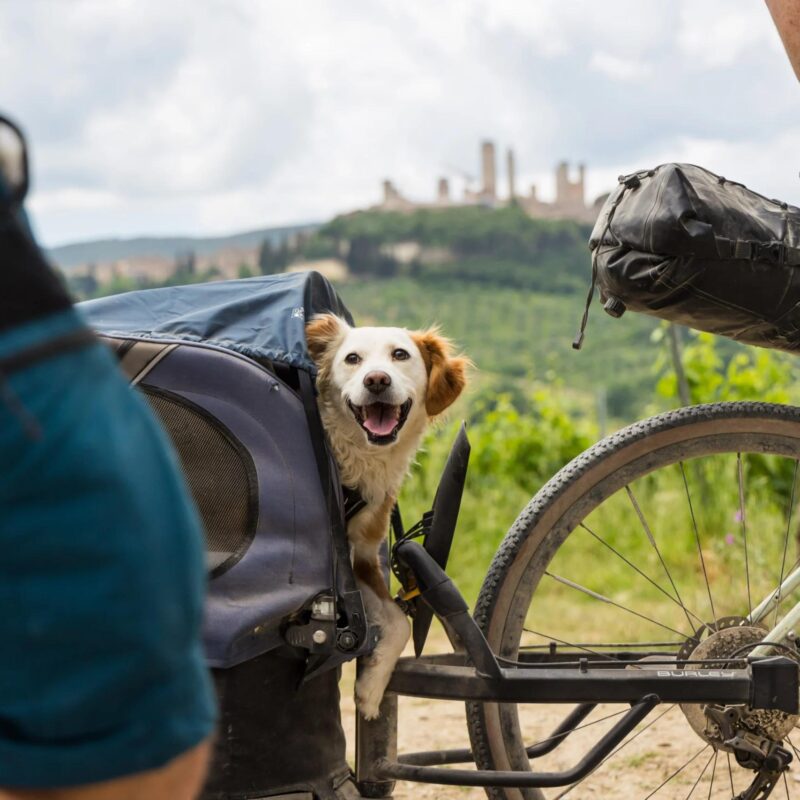

You must be logged in to post a comment.